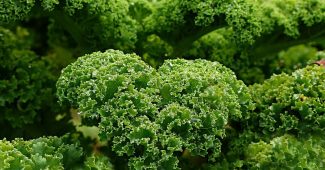Cruciferous vegetables are relatively common yet unique veggies that are low in calories and high in nutritional content, offering many health benefits. They help fight against cancerous elements, boost immune system functions, prevent and address inflammations, and strengthen body cells.
Check out the top 10 cruciferous vegetables well-known for their health benefits you can include in your daily diet.
10Turnip
Turnip is an economically significant herbaceous crop vividly cultivated worldwide for its tender growing tops, fleshy roots, forage, and oilseeds. The bulbs are a mixture of purple and white, with a strong aroma and high nutritional and medicinal value. Turnip greens are rich in vitamins C and K, folate, and provitamin, which promote good health. It also helps reduce liver damage, high blood pressure, stroke, kidney stones, brittle bones, and high blood sugar.
Glucosinolates, flavonoids, phenols, isothiocyanates, indoles, volatiles, and sulfur compounds found in turnips have strong antioxidant activity, help maintain liver structure and function, and prevent cancer. Several other constituents in turnips, like quercetin, indole, alkaloids, etc., contribute to their anti-diabetic activity.
9Cabbage
Cabbage’s high fiber and powerful antioxidants help protect the body from damage caused by free radicals and reduce chronic inflammation. The vegetable also contains vitamin C, which can protect against heart disease, certain cancers, and vision loss. The insoluble fiber in cabbage keeps the digestive system healthy, while anthocyanins help lower blood pressure and bad cholesterol levels.
Top 10 Healthiest Vegetables you Must Eat
8Cauliflower
The antioxidants in cauliflower have anti-cancer effects, anti-inflammatory effects, and capability to boost immune health. As a good source of an essential nutrient called choline, it supports brain development and the production of neurotransmitters and promotes a healthy nervous system.
7Mustard Greens
Frequent consumption of these vegetables is beneficial in stimulating the immune system, preventing oxidative stress, and aiding cancer prevention. They can also boost digestion, bone density, and heart health and are an excellent source of vitamin K, which helps with blood clotting and promotes heart and bone health.
6Swiss Chard
Swiss chard also contains antioxidants like lutein and zeaxanthin to support eye health and reduce the risk of age-related cataracts or macular degeneration. Its dietary fiber helps maintain cholesterol levels, slowing digestion to stabilize blood sugar levels.
5Watercress
Vitamin C in watercress helps protect cells from damage caused by free radicals, which can lead to cancer. Lutein and zeaxanthin, two powerful antioxidants found in watercress, have been shown to reduce the risk of age-related eye diseases and cataracts. Watercress also contains dietary nitrates, which can help improve blood vessel health and lower blood pressure by increasing nitric oxide in the blood.
4Kale
Its high water content and low energy density levels aid in weight loss, and its higher dietary fiber helps maintain blood sugar levels in its normal range. Additionally, after consuming Kale, the body converts the beta-carotene contained in Kale into vitamin A, which is necessary for the growth and maintenance of all body tissues.
3Brussels Sprouts
A natural, sulfur-based substance called glucobrassicin helps prevent DNA damage that raises the chances of cancer. Brussels sprouts are also essential for forming blood clots, supporting bone growth, and protecting against osteoporosis. They are significant during pregnancy as they are rich in folate and help the formation and development of the brain and spine.
2Broccoli
Additionally, the sulforaphane in broccoli boasts potent antitumor properties that help prevent cancer. Moreover, broccoli contains calcium and collagen that work together to maintain healthy bones. The antioxidant properties of vitamin C in broccoli also contribute to a healthy immune system and can help prevent or treat various skin conditions, such as shingles and skin cancer.
Related Articles
1Arugula
Arugula is a cruciferous salad green that offers a distinctive peppery or spicy flavor when added to your diet. Rich antioxidants in arugula help protect your cells from any damage caused by free radicals. Since they contain natural substances like glucosinolates, their bitter taste and strong scent help protect against certain cancers associated with the breast, prostate, lung, and colon.
Arugula may also fight inflammation. As a good source of vitamin K, consuming arugula is particularly good for healthy bones and preventing osteoporosis. These delicious green leafy vegetables are high in several vital nutrients like vitamins A, C, and K, folate, calcium, and potassium.




